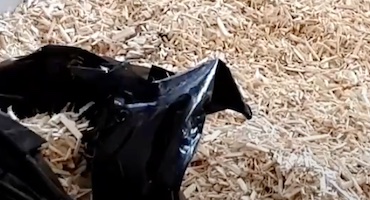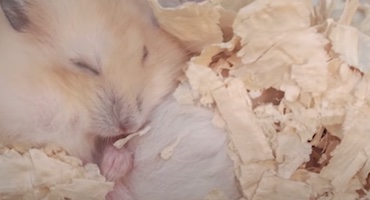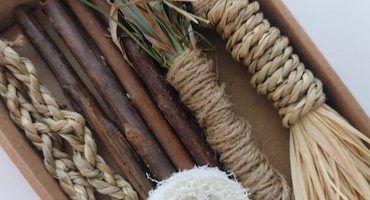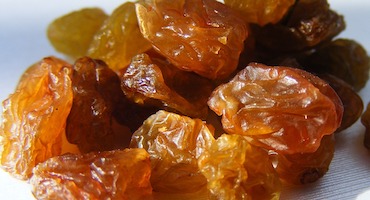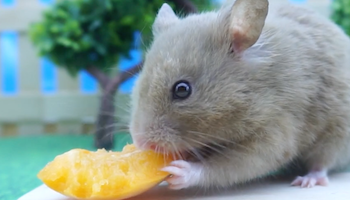As a pet owner, it might sometimes get confusing trying to figure out what the right kinds of foods are for your little hamsters. Typically, leafy green vegetables in moderation are quite beneficial to your hamster’s health. If you are wondering ‘can hamsters eat chard,’ then the answer is yes, hamsters can eat chard!
Chard or Swiss Chard is a leafy green vegetable which is similar to beets and spinach. You can feed your little hamsters chard in moderation every once in a while. Here is everything you need to know about feeding chard to your hamsters.
If you have Syrian hamsters at home, then you already know that these playful creatures love to eat and munch on leafy vegetables of all kinds. However, the leafy green can be slightly bitter, so it is best that you feed this vegetable to your hamsters in moderation. If you want to feed chard to your Syrian hamsters, you can give them a one teaspoon serving of chard once or twice a week only.
Campbell’s dwarf hamsters, as the name suggests, are a species of dwarf hamsters which many people often keep as pets at home. These hamsters have a voracious appetite and love eating leafy greens! You can feed your Campbell’s dwarf hamsters a half teaspoon serving of chard just once a week.
Winter whites dwarf hamsters are also another species of dwarf hamsters which are white, tiny and very playful. These hamsters also love to munch on leafy green vegetables. You can feed your winter whites dwarf hamsters a half teaspoon serving of chard once a week only.
Roborovski hamsters are similar to Syrian hamsters. These hamsters are more giant in size and can digest more quantity of the food as compared to their dwarf hamster cousins. You can feed your Roborovski hamsters a one teaspoon serving of chard just once or twice a week.
Chinese hamsters are another species of dwarf hamsters which make trendy pets. You can feed your Chinese hamsters a half teaspoon quantity of chard just once a week.
In the wild, hamsters are found in different parts of the world where they live in jungles and forests. These wild hamsters are scavengers, which means that they hunt and pick their foods. Because of this, wild hamsters are mostly omnivorous, where they eat both plants as well as animals. In the wild, hamsters survive on a diet consisting of wild berries, fruits, plants, leaves, vegetables, seeds, nuts, and grains. Of course, if they can get their hands on it, they also eat small insects, frogs, and lizards as well.
Your domestic hamsters survive on a healthy diet of exceptional hamster food that you will find in pet stores. Of course, you can always give them the occasional treats every once in a while, like small pieces of fruits, vegetables, some leaves, grains, nuts, and seeds every once in a while. It is essential that you are aware of which foods are safe for your hamsters and which ones are not so that you don’t put your hamster’s health at risk when you give them these treats.
What are the benefits of feeding chard to your hamsters?
Swiss Chard has several amazing nutritional benefits, making it a very healthy choice of food for your little hamsters in moderation. Chard is full of Vitamin A, Vitamin C, and Vitamin K. it also has a high dose of iron, potassium, and magnesium.
The high Vitamin A in chard is excellent for your hamster’s kidneys, brain function, eyes, skin, heart, and lungs.
Vitamin C in chard plays a direct role in improving the eyesight of your little hamsters.
Vitamin K is essential for bone metabolism as well as blood clotting properties.
Iron in chard eliminates fatigue from your hamsters, makes them healthier, stronger, and improves their immune system.
The potassium in chard lowers the risks of heart disease, stroke, low blood pressure, and kidney stones in your little hamsters.
Finally, the magnesium in chard helps your hamsters bone health as well as heart health, making it very healthy and nutritious as a food choice for your hamsters.
What are the risks of feeding chard to your hamsters?
Even with these amazing nutritional benefits of chard, there are still a few risks involved with overfeeding chard to your hamsters.
Giving too much chard to your hamsters can result in them developing stomach pains and aches, digestive tract issues, gas and bloating, diarrhea, and dehydration. Dehydration in hamsters is very dangerous as there is no direct treatment for this condition. If you want to feed chard to your little hamsters, you should stick to a moderate quantity instead of overfeeding them.
Can you feed dried chard to your hamsters?
Whether your hamsters will enjoy eating dried chard or not depends entirely upon your hamsters! You can experiment by giving them a small piece of dried chard in their cage. If they reject it, then make sure that you remove the dehydrated chard from their cage; otherwise, it will rot and cause problems for your hamster.
Do not give more than one small piece of dried chard to your hamsters just once a week, as you should feed them this vegetable in moderation.
Can you feed chard stems to your hamsters?
Yes, you can feed the stems of chard to your hamsters. However, there are two things you need to keep in mind.
First, make sure that you properly wash the chard leaves and stems before you feed it to your hamsters, as they contain pesticides, chemicals, and insecticides and you don’t want your hamsters to consume those.
Secondly, give only a small piece of chard stem to your hamsters, as you should always feed them in moderation.
How much chard can you feed your hamsters?
As for your Syrian and Roborovski hamsters, give them only a one teaspoon serving of chard leaves just about once or twice a week.
For your Dwarf hamsters, it is best that you stick to a half teaspoon quantity of chard just once a week.
Conclusion
As long as you feed your hamsters little treats in moderation, there is no risk to their health. Keep your hamsters on a healthy and balanced diet of exceptional hamster food that you get in pet stores and the occasional tasty treats.
Share
Related Posts
You will often see your little hamsters looking longingly at the food you are munching on, and [...]
Hamsters are a great addition to anyone's family. They make a great pet to teach your child about [...]

